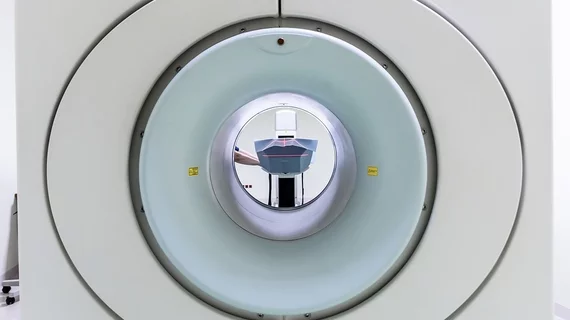Patient dies after oxygen tank is sucked into MRI machine
A 60-year-old South Korean man died Oct. 14 after his oxygen tank was sucked into an MRI machine, fatally hitting him in the head, authorities said Tuesday.
The unnamed individual was critically ill and suffering from seizures prior to entering the imaging suite. Police are investigating why the cylinder was brought into the room but believe the built-in air supply system may have been malfunctioning, This Week in Asia reported.
Park Beom-jin, with the Korean Society of Radiology, told the website he had had never seen anything like this occur before in the country, which operates more than 1,700 such scanners.
“Medical personnel working in MRI rooms should exercise extreme caution to make sure that nothing metallic is brought in. This accident should not have happened,” Park, who is also a professor at the Korea University Anam Hospital, told the news site.
A similar incident occurred at a Mumbai hospital in 2018 when a 32-year-old man brought a tank into the imaging suite while visiting a relative, leading to his death. Read more below.

